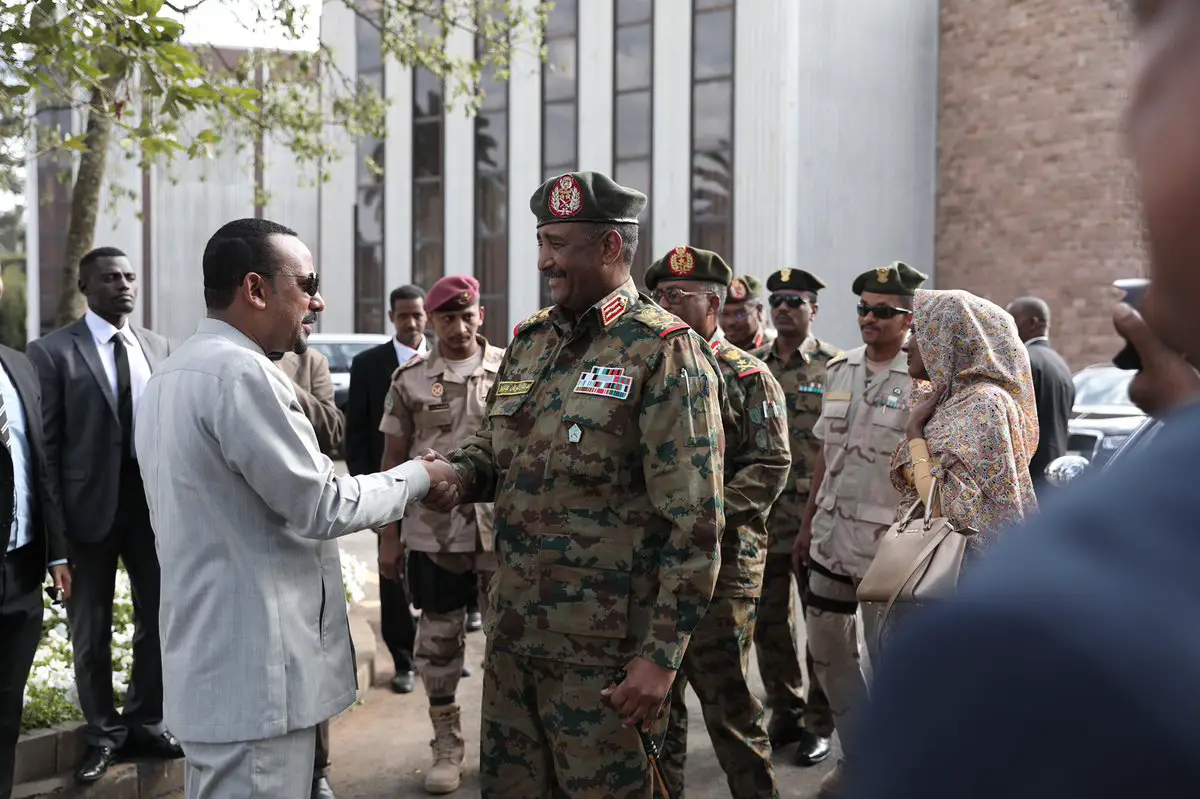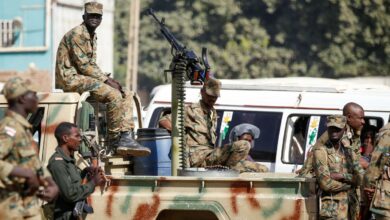Sudan conflict is Ethiopian peacemaker Abiy’s latest stop
The Ethiopian mediator-in-chief met with protesters and the ruling military council in Sudan after a brutal crackdown
Ethiopian Prime Minister Abiy Ahmed Ali arrived in Khartoum late last week in an attempt to negotiate a truce between protestors and the provisional military council which currently rules Sudan.
Abiy has thrown himself in the role of peacemaker in myriad conflicts and disputes across the region from Eritrea to South Sudan to Kenya since coming to power last year. Relatively youthful at age 42, he may find it easy to understand the demands of Sudan’s protestors. Conversely, as a former Ethiopian Army officer who served in Rwanda in 1995, he can also sympathize with those in the Sudanese government who are keen to ensure stability and prevent further violence.
On June 3, Sudanese paramilitary groups known as the Rapid Support Forces carried out a brutal clearance of a long-established camp of protestors. Dozens of people were killed in the crackdown which the military council has blamed on rogue elements.
In many ways, the fall of long-time Sudanese leader Omar El-Bashir was similar to those of the 2011 Arab Spring. The difference in Sudan’s case is that the nation’s military and political elites had in many ways already started to distance themselves from Bashir before the four months of protests that ultimately led to the end of his rule.
Indeed the protests are perhaps more similar to what happened in Ethiopia, where protests largely dominated by members of Oromo ethnic group beginning in 2015 ultimately led to the appointment of Abiy, an ethnic Oromo, as prime minister last year.
This may give Abiy some sympathy with Sudanese protestors. According to media reports he met with representatives of the Forces for the Declaration of Freedom and Change, an umbrella coalition of protest groups and political parties that are continuing their campaign of protests despite the removal of Bashir. Abiy stressed the importance of unity as a precursor to peace in his meeting with the opposition group.
Abiy, who has already seen-off one coup attempt during his short rule (famously joining the mutinous soldiers in push-ups) is comfortable in military circles as well. He has already built a working relationship with the Head of the Sudanese Transitional Military Council General Abdul Fattah Burhan, who visited Ethiopia at the end of May.
During that meeting, Abiy pledged non-interference in Sudanese affairs.
On social media, the Ethiopian Prime Minister’s office shared that the two countries remain allies. Abiy, when asked for advice from Burhan, offered an inclusive transition as the best way forward. During the same visit, the two leaders conducted a bizarre photo-op where they both planted saplings together – presumably in the name of their growing friendship.
PM Abiy Ahmed met with the Head of the Sudanese Transitional Military Council General Abdul Fattah Burhan. General Abdul Fattah recognized Ethiopia as a close ally of Sudan and asked for the PM to share his advise on key concerns raised. 1/2 pic.twitter.com/GcGDeUMK0s
— Office of the Prime Minister – Ethiopia (@PMEthiopia) May 28, 2019
Abiy’s reciprocal visit comes following the decision of the African Union, which is based in Addis Ababa, Ethiopia to suspended Sudan until a civilian council was brought to power.
Governments ranging from the United States to the United Arab Emirates have condemned the June 3 massacre, Abiy is the first international leader to attempt to mediate the dispute.
Ethiopia announced last year its plans to invest in the Port of Sudan. Ethiopia, the world’s most populous landlocked country, hopes to diversify from its reliance on the Port of Djibouti as its main international trading hub by assisting in the development of harbours in Eritrea, Sudan and the breakaway Somali region of Somaliland. Sudan is vital for other reasons as well – the country is the fourth largest source of investment in Ethiopia by number of projects.
Many in Sudan and abroad fear the violence in Sudan could lead to a civil war. Sudan already faces an armed rebellion in the South Kordofan and the Blue Nile provinces, most notably from the Sudan People’s Liberation Movement-North.
However, the leader of that group, Abdelaziz al-Hilu, declared a unilateral ceasefire with the government in April. That declaration is set to expire next month. The Sudanese military’s failure to end this insurgency maybe due to sympathy amongst the SPLM-North from within the military. In 2017, a source in Khartoum revealed that Sudanese forces operating in Kordofan occasionally provided the rebels with food.
However, Yasir Arman, deputy chief of the SPLM-N was detained last week in Khartoum, where he had returned to take part in talks with the military.
Elsewhere the central government has largely succeeded in bringing peace to the troubled Darfur region. However, some Darfuri rebels are now working as mercenaries for Libyan field marshal Khalifa Haftar.
Despite the protests and turmoil, thousands of Sudanese forces continue military operations in Yemen in support of the Saudi and Emirati coalition efforts against Iran-supported Houthi militias and in support of Yemen’s internationally recognized government.
Despite Emirati criticism of the recent crackdown, Burhan maintained good relations with the Gulf states and was the commander who launched Sudan’s intervention in Yemen.
“We are sticking to our commitments to the coalition and will keep our forces until the alliance achieves its objectives,” said Deputy Chairman of the Transitional Military Council, Lieutenant General Mohamed Hamdan Daglo, speaking to the official state news agency in April as Sudan vowed to continue its efforts to curb Iranian influence in the Arab world.
Surprising is how little in the Sudanese protesters seemed to care about Sudan’s involvement in the war in Yemen. Sadiq Al-Mahdi, a Sudanese opposition leader, has called for the government to pull Sudanese troops from Yemen, but this is not surprising as his Umma Party has been vocal in its opposition to Sudan’s rupturing of ties with Iran.
Estimates of the number of Sudanese soldiers in Yemen range from 10,000 to 14,000.
Finalizing his Sudan visit, Prime Minister Abiy Ahmed returned with Ethiopians released from prisons in Sudan. Serving sentences of up to twenty years, the Government of Ethiopia has been negotiating for the release of 78 prisoners over the past few months. #PMOEthiopia pic.twitter.com/ge7p1JYZ3E
— Office of the Prime Minister – Ethiopia (@PMEthiopia) June 7, 2019
For his part, Abiy is keen to see Sudan a peaceful and prosperous country. Before his departure on Friday, Sudan released 78 Ethiopian citizens held in Sudan for a variety of offences with Abiy taking the time to take a group photo with the men before returning home.












